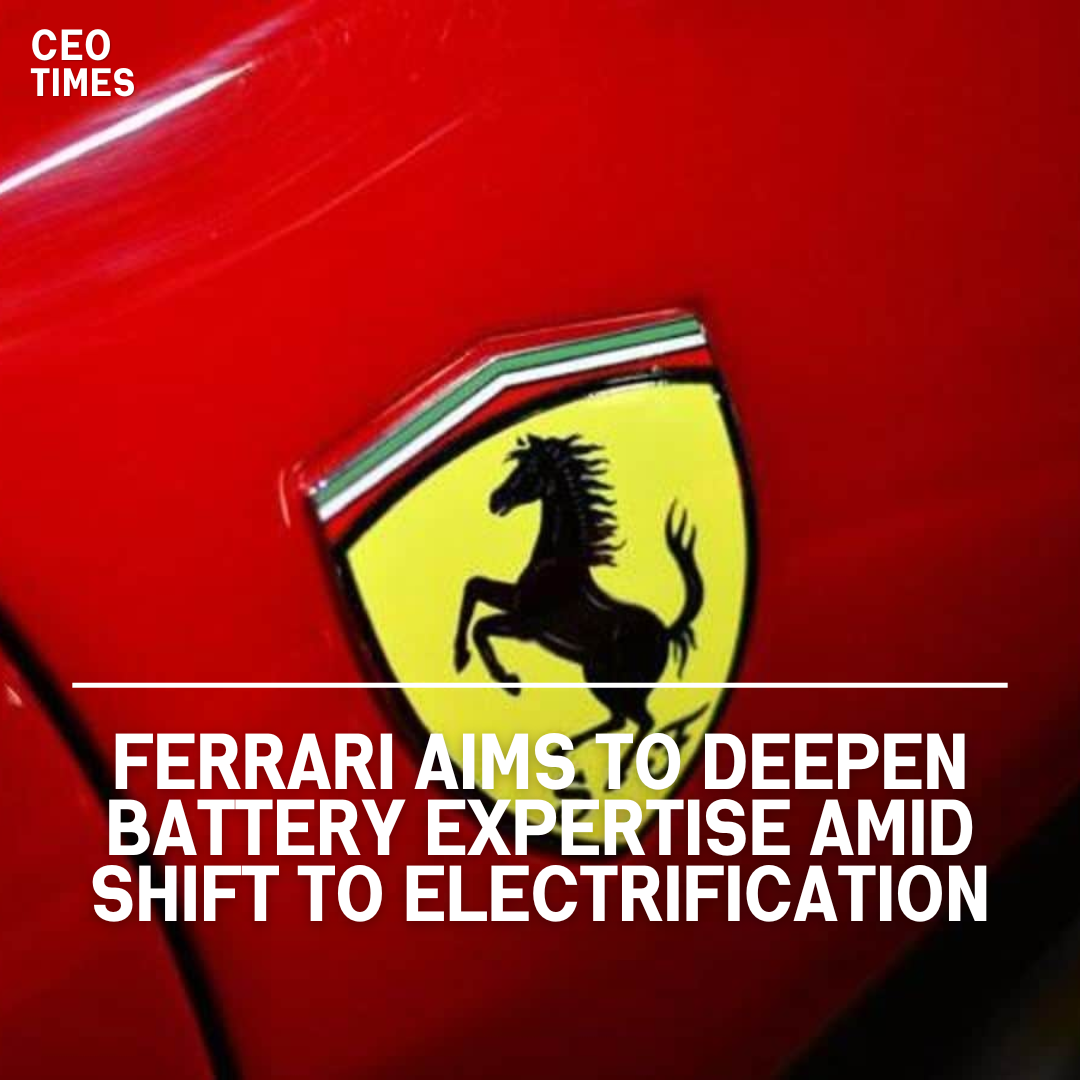Ferrari, renowned for its luxury sports cars, is intensifying efforts to enhance its proficiency in battery cells, a crucial aspect of its transition towards electrified vehicles.
While reaffirming its commitment to electrification, Ferrari’s CEO Benedetto Vigna emphasized its strategic focus on understanding battery technology without venturing into manufacturing.
Strategic Shift to Electrified Vehicles:
Since introducing hybrid-electric cars in 2019, Ferrari has been steadily advancing towards electrification, with plans to unveil its first fully electric vehicle by the end of next year.
Recognizing the pivotal role of battery cells in this transition, the company aims to deepen its understanding of battery technology to facilitate future innovation and development.
Focus on Battery Cell Research:
Ferrari’s collaboration with Italy’s Bologna University and chipmaker NXP Semiconductors has led to establishing a research center dedicated to battery cells, known as the E-Cells Lab.
This initiative underscores Ferrari’s commitment to acquiring in-depth knowledge of battery chemistry and electrochemistry, which is crucial for informed decision-making and strategic partnerships with external manufacturers.
External Manufacturing and Knowledge Acquisition:
While Ferrari does not intend to manufacture battery cells internally, it seeks to unlock the intricacies of battery technology through its research center.
By delving into the composition and functioning of battery cells, Ferrari aims to leverage this knowledge to collaborate effectively with external manufacturers, ensuring the production of high-quality battery cells tailored to its electrification goals.
Emphasis on Understanding Battery Chemistry:
Vigna stressed the importance of comprehending battery chemistry, particularly as Ferrari expands its utilization of battery cells in electrified vehicles.
The E-Cells Lab will initially focus on lithium-based, liquid-state cells, with the flexibility to explore new chemistries and technologies in the future. However, solid-state batteries are not currently considered a viable option.




















